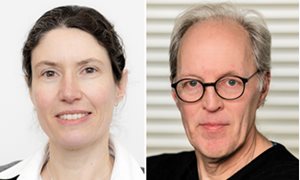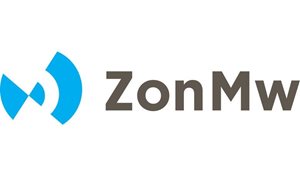 My name is Jeroen Creemers and I am currently working as a clinical PhD candidate in the Computational Immunology group at the Department of Tumor Immunology, theme Cancer development and immune defense.
My name is Jeroen Creemers and I am currently working as a clinical PhD candidate in the Computational Immunology group at the Department of Tumor Immunology, theme Cancer development and immune defense.
When you were a kid what did you want to be when you grew up? Can you tell us something about your child years.
I was born and raised in Nijmegen and was very active as a child: I liked to play outside in nature, did a lot of sports (judo and swimming) and liked music. As a kid I had many future aspirations: I wanted to live in the tropical rain forests as an explorer, but I also wanted to become a doctor (especially in sports medicine) and an architect. I am glad that I ended up in medicine, which has allowed me to combine a fascination for complex patho-/physiological processes with contact with patients.
What was your previous academic training, where did you study and why that study?
First, I studied Medical Biology at the Faculty of Science of the Radboud University. It was a really interesting bachelor program which provided an excellent overview of fundamental biological principles. In particular the alterations in signal transduction pathways that lead to unrestrained proliferation of cells during carcinogenesis fascinated me. Although interesting, I noticed that I would like to do more than research alone: I wanted to apply knowledge and encounter complex pathophysiological problems in practice. Therefore, I finished the bachelor program and switched to the master program Medicine at the Radboudumc. My preference for oncology remained and because I would like to combine clinical care for patients with research, I started as a PhD candidate at the Department of Tumor Immunology.
The RIMLS motto is: ‘Today’s molecules for tomorrow’s medicine’. What does this mean for you?
I think that it describes the pursuit of unravelling the molecular and thereby mechanistic basis of disease to find new therapeutic options for patients.
Who is your great example as scientists? And please give a motivation why.
There are so many great scientists, that I cannot pick just one of them! Already in ancient times there were brilliant minds with great ideas (e.g. Hippocrates), but also more recently we have known giants who have transformed academia. Some great examples in my view are Darwin and Wallace with their ideas on evolution, Watson, Crick and Franklin who unravelled the DNA structure and Kaplan, Meier and Cox who contributed to the current analysis and representation of time-to-event data as published in nearly all clinical studies today.
The similarity between these minds might originate from the fact that they were able to ‘think outside of the box’ and show perseverance during times when others were sceptical.
Which research discovery that you have made has made you most proud?
The topics that I am currently working on, studying the consequences of conventional clinical trial design in immuno-oncology and implementing new mechanism-based methods to improve clinical trial design, make me proud. The clinical trial industry is a multi-billion dollar industry with (sadly) in terms of patient benefit more setbacks than breakthroughs. Being able to contribute to this field and pursuing an improvement for patients with cancer in these (research) settings provides a great motivation.
Given unlimited finance what experiment would you perform?
Given unlimited finance I would dream bigger than a single experiment! In that case, I would like to set up a state-of-the-art clinical research unit focussing on oncology in which clinicians work alongside fundamental biomedical scientists and data scientists to improve cancer care. The primary focus would be on the translational implementation of fundamental biomedical knowledge in patient care and mechanism-based/data-driven optimisation of clinical trials.
What does your working area (desk, office) look like and what does it say about you (or your research)?
I share an office with several colleagues on the 5th floor facing the Nijmegen city center. My desk is (often) clean and organized in order to focus as optimal as possible and reduce potential distractions.
Nominate a colleague to be in the spotlight and what would you like to ask him or her?
I would like to nominate Shabaz Sultan, a fellow PhD candidate in our group with a totally different background (informatics/computational modelling). What are the prerequisites for an optimal collaboration between clinicians and data/computer scientists to work together productively and what can both fields learn from one another?
What type of person are you, quick insights:
a) Mac or PC? : Both have their strengths and weaknessesb) Theater or cinema? : Cinema
c) Dine out or dine in? : Dine out
d) Ferrari or Fiat? : Lamborghini
e) Shopaholic or chocoholic? : Shopaholic
f) Culture or Nature : Nature
Related news items

ZonMw Open Competition Grant for Annemiek van Spriel and Piet Gros
15 June 2021 Annemiek van Spriel, theme cancer development and immune defense, together with Piet Gros, Dept. of Chemistry, Utrecht University obtained a ZonMw Open Competition Grant to investigate IL-6 receptor structure and signalling in tumor cells. go to page
HFSP Grant for Johannes Textor
30 March 2020 Johannes Textor, theme Cancer development and immune defense, has been awarded a program grant of 1 million US dollars by The Human Frontier Science Program (HFSP) to investigate how T cells navigate extremely dense environments using experiments, modeling and methods from pedestrian dynamics. go to page
Human pDCs attract cytolytic lymphocytes in anti-cancer vaccination
6 February 2020RIMLS researchers Jasper van Beek and Jolanda de Vries, theme Cancer development and immune defense, discovered that pDCs can efficiently recruit cytolytic immune effector cells, a property that could be exploited in anti-cancer vaccines. They have published these findings in Cell Reports.
go to page
ZonMw funding for teams of Michiel Vermeulen and Jolanda de Vries
4 February 2020The awarded research projects of RIMLS researchers Michiel Vermeulen, Jolanda de Vries, Gerty Schreibelt and Martijn Verdoes and colleagues will initiate new research lines and collaborations between various research groups.
go to page
Niels Stensen Fellowship for Jorieke Weiden
6 January 2020 Jorieke Weiden was recently awarded a grant from the Niels Stensen Fellowship. Since the 1960s, the Niels Stensen Fellowship has been awarded annually to outstanding researchers who recently received their PhD to enable them to gain research experience at a top university or institute abroad. go to page